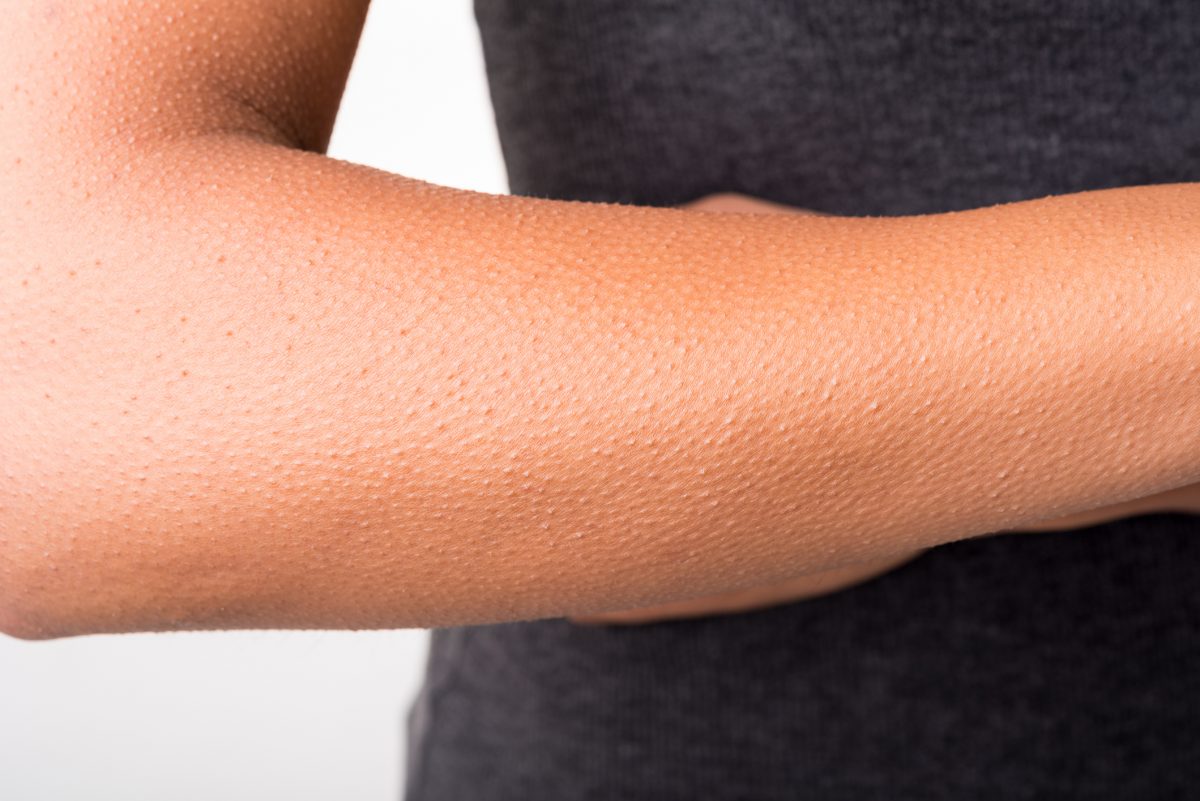Charley horses, yawning, brain freeze — we’ve explored the reasons behind these phenomena, but we haven’t scratched the surface of all the weird ways your body reacts to the world.
Here are 4 more body quirks explained.
Why do you get butterflies in your stomach?
It’s romantic to believe having “butterflies in your stomach” indicates you’re falling in love, but the sensation is really just a reaction to stress. When you’re scared, anxious or excited, you experience a “fight-or-flight” response: Your body decides in a matter of seconds whether to fight or flee in response to stress. As part of this process, your body sends more blood to your lungs and muscles so you’re ready to act, which means less of your blood is reaching other organs, including your stomach. Add to that a few hormonal surges and you’ve got the fluttery feeling we’ve come to know as “butterflies in your stomach.”
Why do you get goose bumps?
Goose bumps are the result of an involuntary muscle contraction that happens when you (1) get cold or (2) feel a strong emotion (fear, excitement, etc.). Goose bumps are actually a vestigial reflex, which means we don’t use them today, but our ancestors did. Scientists think that goose bumps were our body’s way of (1) creating warmth by trapping air closer to our skin (this can happen when you walk outside into cold air or if you catch a chill while shaving your legs), or (2) making us appear “bigger” to scare off predators, which is the same principle you see at work when your dog or cat gets scared and their hair stands on end.
Goose bumps got their name because they resemble the skin of a just-plucked goose
Why do you shiver after going to the bathroom?
Shivering after you urinate: It’s not talked about much in polite company, but it is common, especially for men. Why? Scientists aren’t sure, but their best hypothesis is that it’s a response of the parasympathetic nervous system, aka the one that’s responsible for the “rest-and-digest” system, which lowers the body’s blood pressure so we can urinate. (This is why we tell kids to relax when we’re trying to get them to go to the bathroom.) The shudder itself may simply be a reaction of the body’s sympathetic nervous system — aka the “fight-or-flight” one — that’s activated when your hormones are dispatched to restore or maintain blood pressure. Since men typically urinate standing up, they’re more prone to feeling the effects of lower blood pressure.
Is déjà vu a real medical phenomenon?
Everybody knows the feeling: I’ve done this before. Except you haven’t — you’re in a new place or you’re doing something new, yet you can’t shake the feeling that you’ve lived some part of it before. That’s déjà vu.
The phrase “déjà vu” means “already seen” in French
Scientifically, déjà vu is a function of two neighboring parts of the brain:
- The temporal cortex, which processes our sensory experience of the world, and
- The hippocampus, which helps form and retrieve memories.
When both circuits fire at the same time, we get the sensation of “remembering the present.”
Are certain people more susceptible to déjà vu?
Yes. You can be more susceptible to déjà vu if you:
- Have more education
- Travel frequently
- Remember your dreams
Déjà vu is also more likely to happen on evenings and weekends, and it occurs most often in people ages 15-25, decreasing with age from there. By and large, déjà vu is slightly disorienting but harmless for the 70% of us who experience it. The only times it may signify a problem are when it occurs frequently (several times a month), is accompanied by dream-like memories, causes you to lose consciousness or triggers certain functions (chewing, fumbling, heart racing) that are beyond your control.
Get more information about specific health terms, topics and conditions to better manage your health on bcbst.com. BlueCross BlueShield of Tennessee members can access wellness-related discounts on fitness products, gym memberships, healthy eating and more through Blue365®. BCBST members can also find tools and resources to help improve health and well-being by logging into BlueAccess and going to the Managing Your Health tab.



WellTuned provides inspiration and practical advice for healthy living.
WellTuned does not offer medical advice. Any personal health questions should be addressed to your doctor.